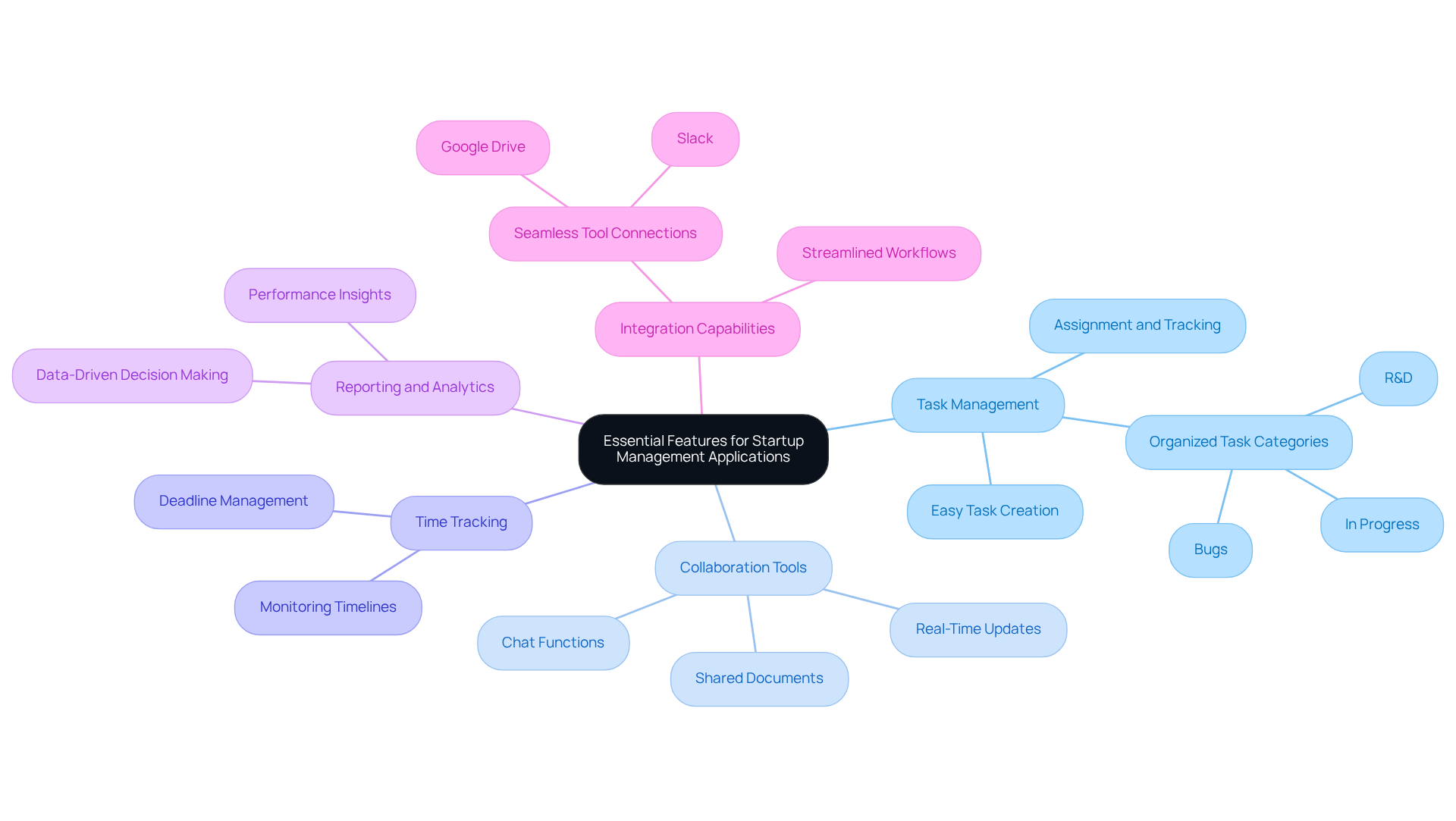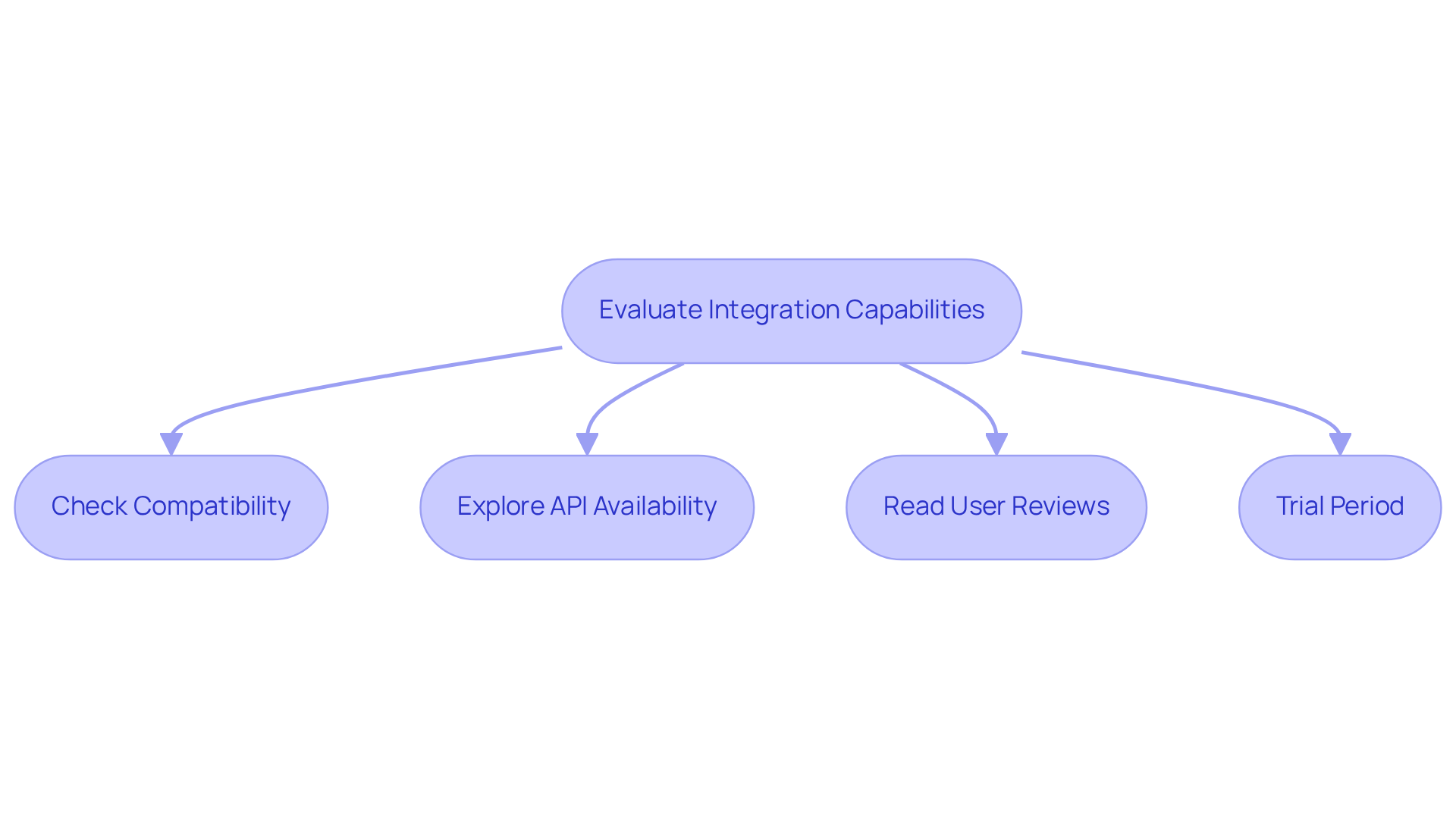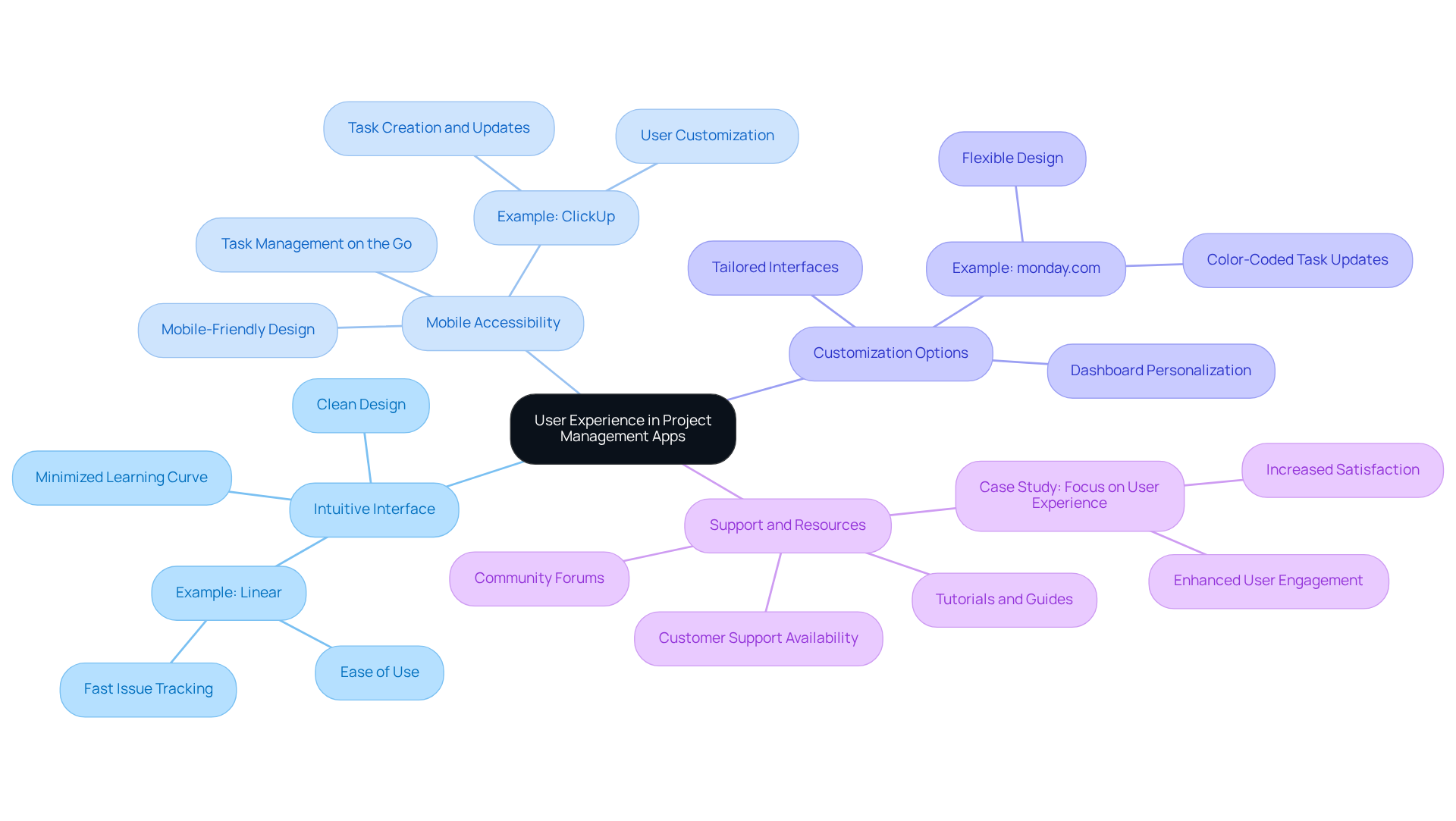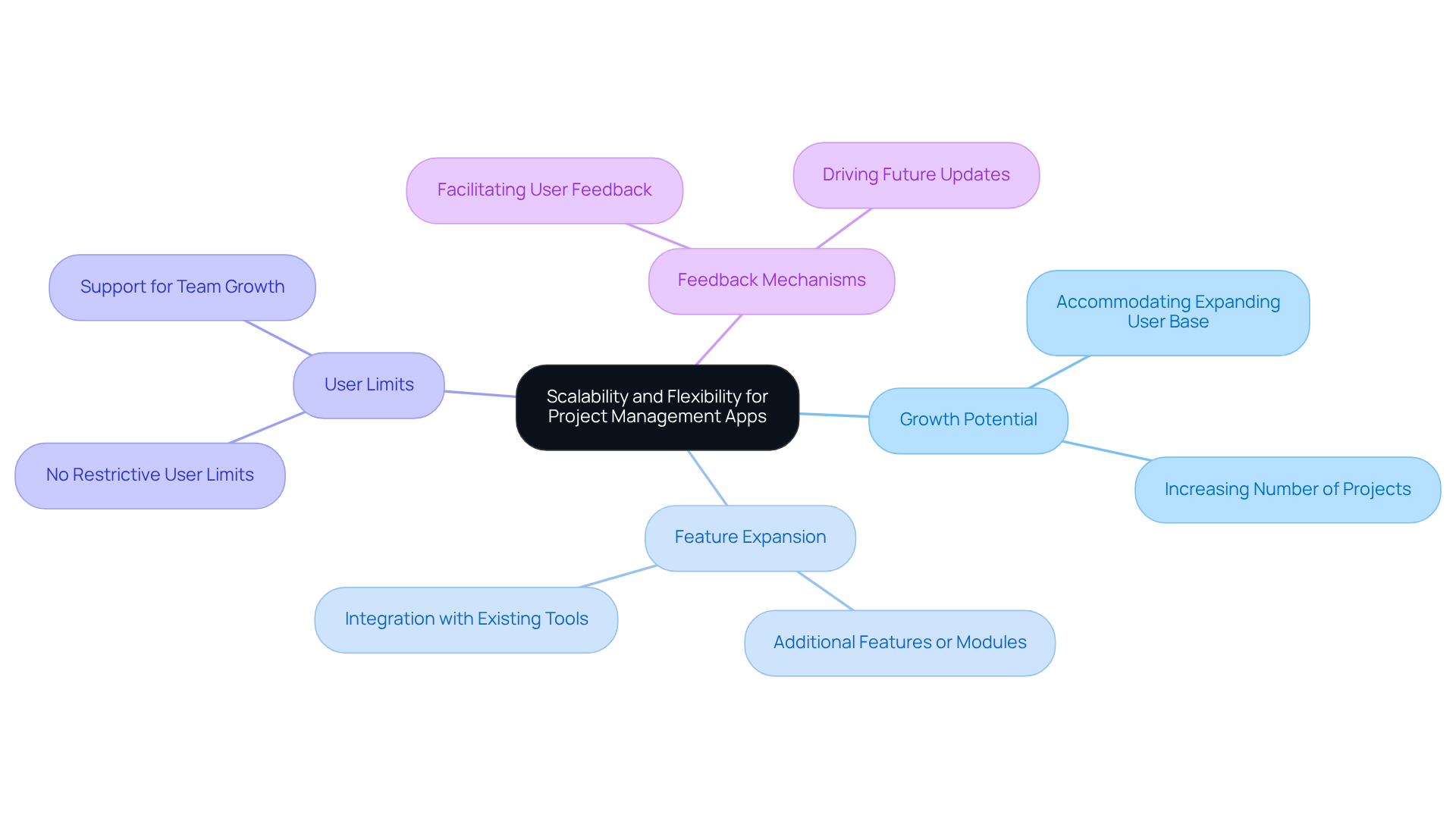Overview
Choosing the right project management app for startups is crucial. Key features such as:
- Task management
- Collaboration tools
- Time tracking
- Reporting
- Integration capabilities
must be identified. But how do these features align with your startup's unique challenges? Evaluating these elements, alongside:
- User experience
- Scalability
- Flexibility
is essential. This careful assessment ensures the selected app effectively meets the distinct needs of a growing startup. By prioritizing these criteria, you position your startup for success in a competitive landscape.
Introduction
Choosing the right project management app is pivotal for startups as they navigate the complexities of growth and collaboration. With a plethora of options available, it is essential to understand the key features tailored to a startup's unique needs. This understanding is crucial for optimizing both productivity and team dynamics.
However, amidst the myriad of choices, what criteria should startups prioritize? It is imperative to select a tool that not only meets current demands but also scales with future ambitions.
Identify Essential Features for Your Startup's Needs
To begin, it is crucial to outline the essential features your startup requires from a management application. Consider these key functionalities:
- Task Management: The application must facilitate easy task creation, assignment, and tracking, ensuring that all tasks are organized efficiently.
- Collaboration Tools: Look for features that enhance communication among team members, such as chat functions or shared documents that foster teamwork.
- Time Tracking: This functionality is vital for monitoring timelines and ensuring that deadlines are consistently met.
- Reporting and Analytics: Choose a resource that provides insights into the progress and performance of your team, allowing for informed decision-making.
- Integration Capabilities: The app should seamlessly connect with tools your team already uses, like Slack or Google Drive, to streamline workflows.
By identifying these essential features, you can effectively narrow down your options and select the best management application for your startup.

Evaluate Integration Capabilities with Existing Tools
Next, evaluate how effectively potential application solutions connect with your current resources. To assess integration capabilities, consider the following:
- Check Compatibility: Is the app able to connect with essential tools like email, calendars, and communication platforms?
- Explore API Availability: A robust API is crucial for custom integrations, which can be advantageous as your startup scales.
- Read User Reviews: Seek feedback on integration experiences from other startups to gauge reliability and performance.
- Trial Period: Take advantage of free trials to test integrations in real-time, ensuring they meet your needs without causing disruptions.
By concentrating on integration features, you can select a project management app that will enhance your current workflows.

Assess User Experience and Ease of Use
When evaluating project management apps, it is crucial to focus on user experience, particularly the following aspects:
- Intuitive Interface: Seek applications with a clean and straightforward design that minimizes the learning curve. An intuitive interface enables group members to quickly adjust, enhancing overall productivity. Solutions such as Linear are commended for their ease of use and effectiveness, making them ideal for startups that require efficient task management without overwhelming users. Industry experts emphasize that prioritizing user experience is a top priority for developers in 2025, leading to quicker adoption and enhanced productivity.
- Mobile Accessibility: Ensure the app is mobile-friendly, allowing team members to manage tasks while on the move. This flexibility is essential in today's fast-paced work environment, where remote work is increasingly common. A case study on enhanced collaboration resources highlights that the rise of remote work has accelerated the demand for applications that facilitate mobile access.
- Customization Options: The ability to tailor the interface to your group's preferences can significantly enhance usability. Contemporary project management apps offer enhanced customization choices, enabling teams to design dashboards and reports that align with their distinct requirements. This is particularly advantageous for startups with unique workflows. A user of the project management app monday.com noted that its intuitive and flexible design makes it a remarkable choice for groups seeking to personalize their experience.
- Support and Resources: Investigate the availability of tutorials, customer support, and community forums that can assist users in navigating the app. A strong support network can ease the transition to a new resource and ensure that teams can optimize its capabilities. The case study titled "Focus on User Experience" illustrates how effective support resources can lead to better user engagement and satisfaction.
By prioritizing these aspects of user experience, including the innovative features of solutions like Casy, which integrates seamlessly with chat platforms to enhance task coordination, you can select a resource that your team will not only embrace but also utilize effectively. This ultimately drives productivity and collaboration.

Consider Scalability and Flexibility for Future Growth
Finally, consider the flexibility and scalability of the project management app.
- Growth Potential: Select a tool capable of accommodating an expanding user base and an increasing number of projects without compromising performance.
- Feature Expansion: Identify apps that provide additional features or modules that can be integrated as your needs evolve.
- User Limits: Confirm that there are no restrictive user limits that could impede your team's growth.
- Feedback Mechanisms: Opt for a tool that facilitates user feedback, driving future updates and improvements.
By prioritizing scalability and flexibility, you ensure that your startup's project management app remains an invaluable asset as it grows.

Conclusion
Choosing the right project management app is a pivotal decision for startups aiming to streamline operations and enhance productivity. By focusing on essential features tailored to your unique needs, evaluating integration capabilities with existing tools, prioritizing user experience, and considering scalability for future growth, startups can make informed choices that foster collaboration and efficiency.
Key insights highlighted in this guide include:
- The importance of task management
- Collaboration tools
- Reporting functionalities
These are crucial for maintaining organization and transparency within teams. How well does your chosen app integrate with current resources? Its user-friendliness can significantly impact the overall effectiveness of the solution. Moreover, ensuring that the app can scale alongside your startup's growth is vital for long-term success.
Ultimately, selecting the right project management app not only enhances daily operations but also sets the foundation for sustained development and innovation. Startups are encouraged to take the time to assess their specific requirements and explore the best project management apps available in 2025. The right tool can transform challenges into opportunities for growth and success.
Frequently Asked Questions
What are the essential features to consider for a startup management application?
Essential features include task management, collaboration tools, time tracking, reporting and analytics, and integration capabilities.
Why is task management important for a startup?
Task management is crucial as it facilitates easy task creation, assignment, and tracking, ensuring that all tasks are organized efficiently.
How do collaboration tools benefit a startup?
Collaboration tools enhance communication among team members through features like chat functions or shared documents, fostering teamwork.
What is the significance of time tracking in a management application?
Time tracking is vital for monitoring timelines and ensuring that deadlines are consistently met.
Why should a startup consider reporting and analytics features?
Reporting and analytics provide insights into the progress and performance of the team, allowing for informed decision-making.
What are integration capabilities, and why are they important?
Integration capabilities allow the app to seamlessly connect with tools the team already uses, like Slack or Google Drive, streamlining workflows.




